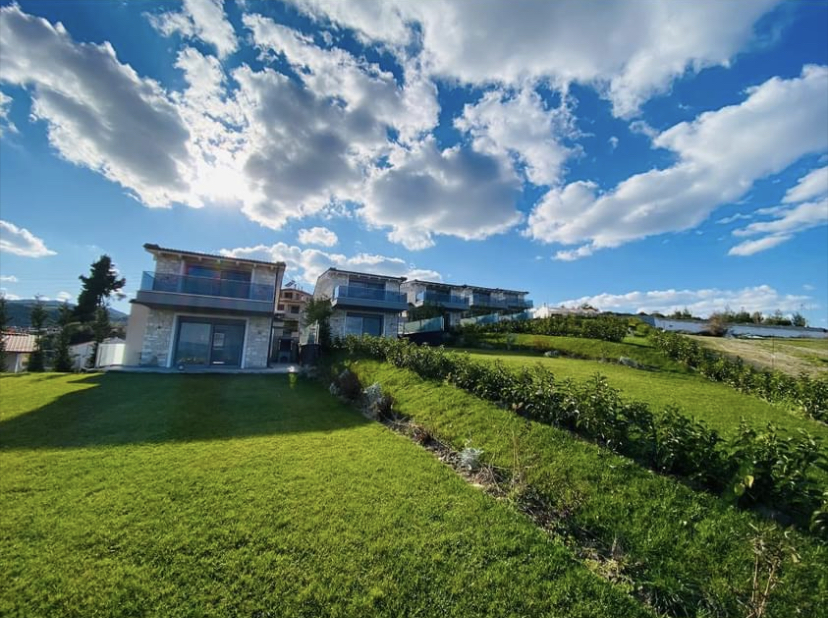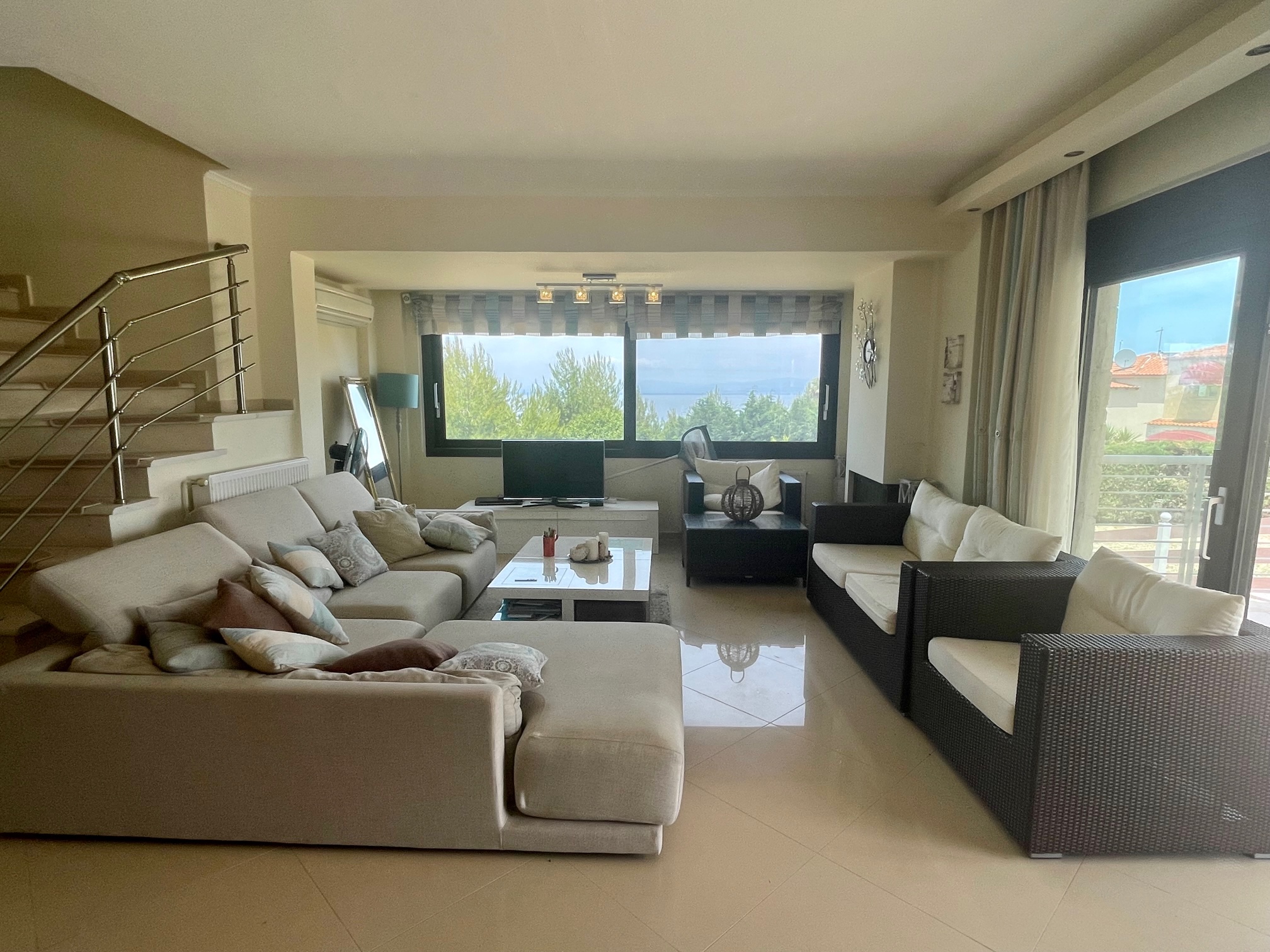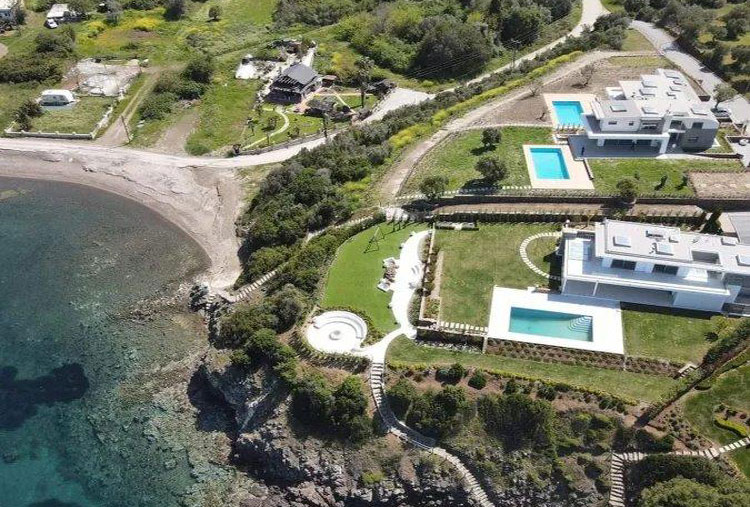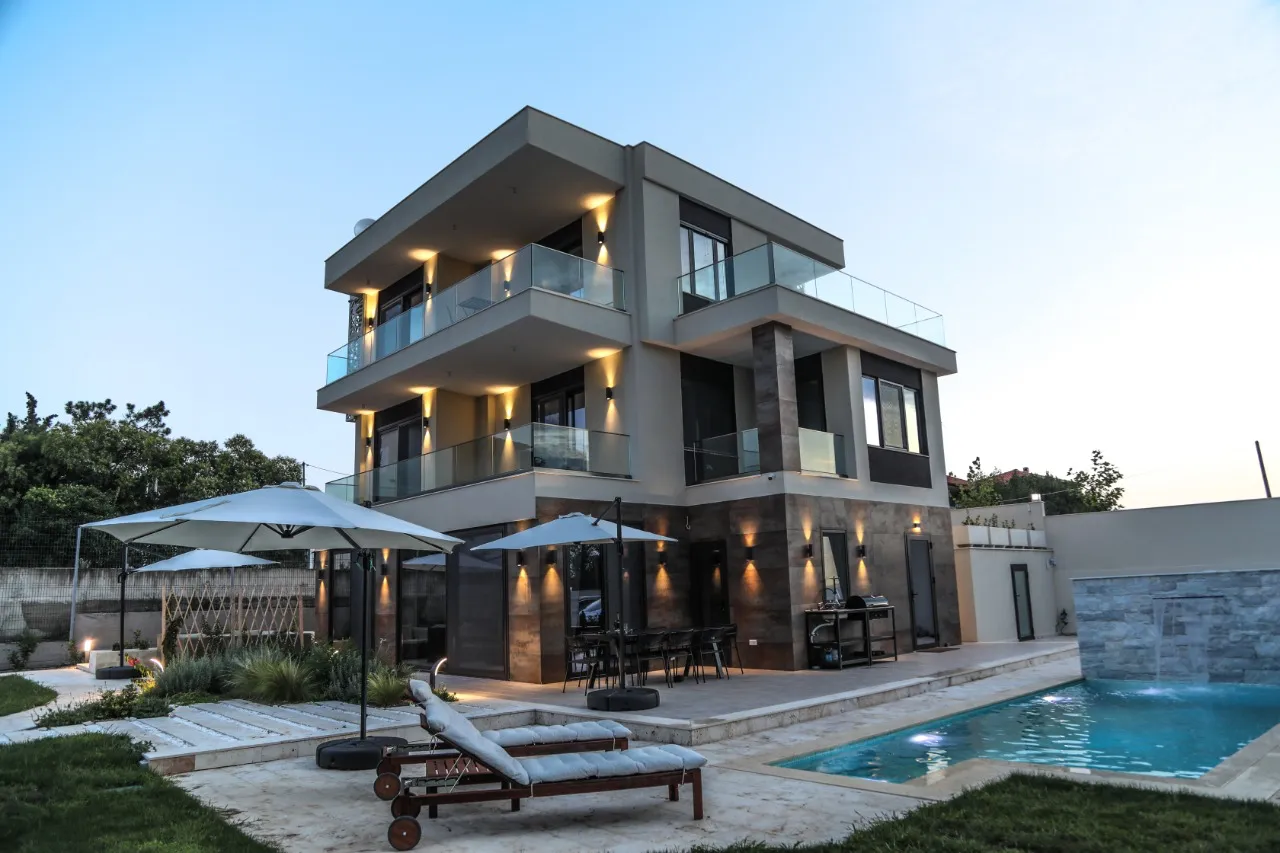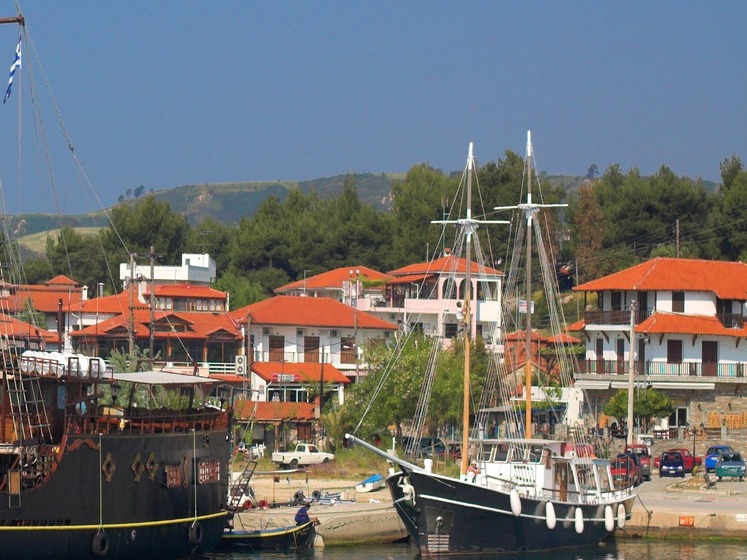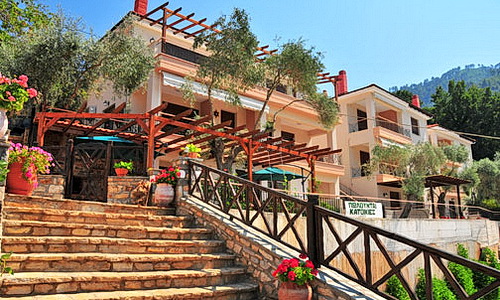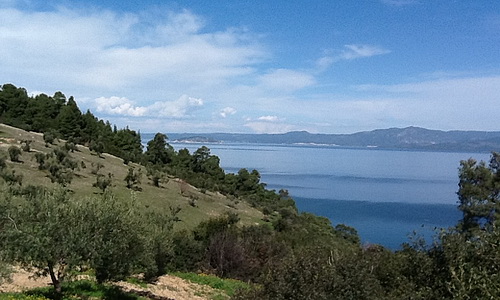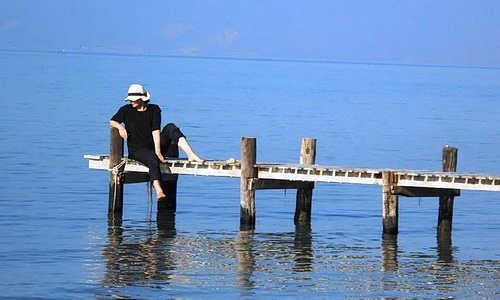Money matters
After you’ve established your aims, you need to sit down and assess your finances. How much money can you comfortably use from your savings, or from the sale or remortgage of your property? As well as looking at purchase price, you need to think about other buying costs, unexpected costs that could crop up along the way and the cost of maintaining a lifestyle in Greece. Approaching your budget meticulously will guarantee that you have a firm handle on your finances from the very start of your search. Knowing how much you have, and when you will realistically be able to access it, reduces the risk of you falling in love with a property that is out of your price range, or that you won’t be ready to make payments on. One common trap that overseas buyers fall into is not understanding the effect that exchange rates can have on the price of their overseas property, and not being aware of the best way to transfer their funds to Greece.
Outlining your budget from the start means that you’ll be able to begin the search for your dream property in an informed manner.
Key financial points to consider are:
- The total amount of money you have available to purchase a property
- If you buy with a mortgage, how much of a deposit you need and how you will make the monthly repayments
- The costs that come with buying property (fees and taxes)
- The cost of maintaining the property
- Your maximum purchase price, including taxes and fees
What other costs are involved in buying property in Greece?
The costs you encounter when buying in Greece will vary depending on the type of property, the purchase price and whether or not you are buying with a mortgage. As a rough guide, here is a list of the buying costs you are likely to encounter:
Agent’s fees
These will generally be between 2 and 4 per cent of the purchase price, depending on the agent.
Legal fees
Legal fees associated with Greek house sales are charged at up to 1 per cent of the ‘assessed tax value’, which depends on the actual value of the property itself.
Notary fees
You can expect to pay between 1 and 2 per cent of a property’s ‘assessed tax value’ in notary fees. In addition, you may encounter small fixed fees for each document included in the sale contract.
Property Transfer Tax
In a bid to stimulate the Greek property market, the government reduced property transfer tax on resale properties down from 8-10 to just 3 per cent.
Value Added Tax (VAT)
VAT only applies to new build properties. VAT rates can vary between locations but may be as high as 24 per cent. New-builds that had building licenses issued before January 2006 will not be subjected to VAT charges but if VAT charges do apply to your property, you will not have to pay purchase tax.
Land registry and Union fees
Land registry fees range from 0.3 to 0.5 per cent of the ‘assessed tax value’. Small fixed fees will be imposed for stamp duties and certificates. You will be charged a fee of 1 per cent of the taxable price of the property up to a value of €44,000 and then 0.5 per cent on the remaining taxable property price.
Local municipal tax or community tax
Three per cent of the property transfer tax will have to be paid to the local municipality to cover general public services, such as road maintenance.
Survey fees
An architectural survey (topograph) is a formal document prepared by an architect, which gives a technical description of the property. We recommended that you organise an independent survey, to make sure that the surveyor has your best interests at heart. The fee for this will depend upon the type of survey you require, any special requirements and the value of the property or land. The cost usually starts from €290 and should be agreed in advance.
Registering a mortgage
If you’re buying your Greek property with a mortgage, the Registry of Mortgages will charge you a fee of 0.45 per cent of the property price
What is the biggest financial mistake made by those buying property in Greece?
The biggest mistake you can make is failing to realize the impact of exchange rates on the final price of the property and on the agreed buying costs. Unless you already have enough Euros in Greece to pay for the property and the fees involved, you will need to make currency transfers. If, up until this point, you haven’t considered the impact of fluctuating exchange rates, you could get a nasty shock. The price of currency fluctuates second by second as it gets traded on the currency market. As a ‘live’ market, on any given day, the exchange rate you receive in the morning could differ wildly from the rate you receive in the afternoon. And, over the course of weeks or months, the rate could move even more dramatically.
How can you finance a property in Greece?
There are a number of ways that you can pay for a property in Greece. Mortgage offers in Greece change on a day-to-day basis. Typically the maximum loan-to-value amount in Greece sits around 70 per cent, you must be under 70 to obtain a mortgage and the maximum loan term is usually between 25-30 years. Remember to factor the monthly repayment figure into your budget. Banks will normally not lend if repayments would be more than 30 per cent of your net monthly income. Interest rates will differ depending on the type of mortgage that you choose, but typically sit at around 4-5 per cent.
What criteria do lenders look at? When your mortgage application is under consideration, lenders will look at the following:
- Your current income
- Type of income i.e. full time, part time, contract)
- Number of dependents
- Type of loan requested
- General living expenses
- Current savings and other assets
- Financial commitments, including credit card debt and limits
How much does it cost to maintain a lifestyle in Greece? Living costs to factor into your budget include:
Healthcare
The Greek healthcare system used to have a good reputation but it has suffered in the years of austerity. Private healthcare is popular both for international residents and Greeks. The cost of your monthly policy will depend on how many family members you want it to cover and your individual needs, but it can easily add up to over €1,000 per month.
Transport
If you are going to be using public transport regularly, it may be more cost-efficient to pay for a monthly pass rather than to pay for each individual journey. Passes normally cost around €30. Petrol and diesel are very similar in price to the EU.
Food
Greek cuisine is fresh, delicious and generally quite cheap. Over recent years, prices of basic groceries have snuck up due to high VAT rates, but it is still possible to buy locally and to eat well for very little compared to in the EU.
Education
Many families moving to Greece with children opt for an international school where the lessons are in English and the qualifications recognised all over EU. Tuition fees usually range from €5,700 to €11,000. There is nothing to pay with a Greek education, however. It is free, will allow children to learn a new language and will often help you to make friends in the community.
Utilities
Monthly bills covering electricity, gas, water and rubbish collection for a small apartment average around €150 per month.
Getting connected
Internet packages start from €20 per month and go up according to the speed of service you require and your data usage. You can buy a sim card for €5 and add credit as and when you need it. Mobile phones cost around the same as in EU.
Why is careful financial and tax planning so important?
Careful financial planning should always be a priority. You need to establish whether you can afford to buy a property, and make sure that any assets or investments you possess are earning you the maximum amount of income or interest possible, even once you’ve left your country.
Earning money in Greece
Work isn’t easy to find in Greece in the current financial climate and with few international visitors speaking Greek. One option is to try self-employment or to work distantly for your emploeer from your Greek home. Many jobs today only require a good internet connection and a skill that will allow you to work from home, such as writing, editing, programming, graphic designing, project management, accountancy or telesales. There are many sites where you can outline your expertise, upload a CV and either wait for people to contact you, or bid on jobs as they come up.
You should also seek out clients in the local area or within the expat community. The great thing about work of this nature is that you can manage your time and take on work as and when you need it. Another option is to set up your own company. You could buy a franchise, snap up an existing company or start something from scratch. This is by no means an easy and risk-free option, and there will be rules and regulations to follow and red tape, but if you have existing success with running a company it might be a good option that will allow you to maintain your lifestyle in Greece. Running a bar or restaurant is a popular option with expats abroad. Success is more likely if you approach this with commitment, and having done significant research. You need to think about competition, clientele, how seasonal your business will be – as well as staffing and suppliers. Seriously consider how many hours you are going to have to put in and whether you’ll be happy working weekends. It’s only by giving all of these areas serious consideration that you’ll be able to determine whether a life in Greece’s hospitality industry is really the right route for you. Another way of earning income in Greece is to rent out your property. This also requires extensive research but can certainly be a money spinner. Beware local rules on rentals, however, as some tourist authorities are clamping down on informal rentals, such as via Airbnb, booking.con and imposing strict licensing controls.
Guide to Buying Real Estate in Greece: The Complete Handbook:
- Part 1: Get started
- Part 2: Money matters
- Part 3: Finding and purchasing a property in Greece
- Part 4: Legal matters and life permission
- Part 5: Information for five years residence permission
- Part 6: Managing your property
- Part 7: Expenses Calculator
- A brief guide to Residence Permits for real estate owners in Greece (pdf)















































































